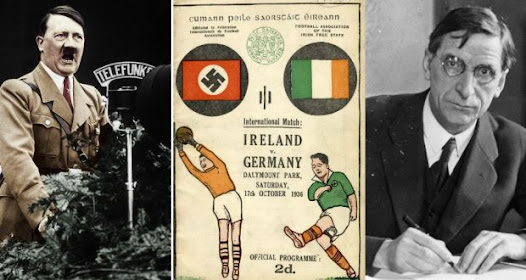A phantom hangs over Ireland’s relations with Hitler’s Germany. Since Eamon de Valera’s visit to the Third Reich’s minister to Ireland on 2 May 1945, the spectre of pro-Nazism has dogged Ireland’s reputation. De Valera’s condolences on the suicide of the German head of state, Adolf Hitler, spawned immediate international condemnation. He gifted his critics all the ammunition that they desired to stigmatise Ireland.
The notorious character and conduct of Charles Bewley, the Irish minister to Germany in the 1930s, would appear to substantiate this unkind depiction. Arriving in Berlin in July 1933 after Hitler’s seizure of power, he betrayed a lack of professionalism time after time. Disturbing signs of his anti-Semitism, dogmatic Anglophobia and insolence are clear throughout his career from the early 1920s. After 1933 he engaged in an unashamed charm offensive to curry favour with the Nazi regime. During his accreditation ceremony with President von Hindenburg, Bewley referred to the “national rebirth of Germany” in an unconcealed endorsement of Nazism. During his tenure, he recurrently endorsed Nazism as a safeguard against the expansion of Soviet Communism. He downplayed or apologised for the reprehensible Nazi regime’s negative features such as the persecution of Jews, the suppression of Christianity and its aggressive expansionism.
However, Bewley was not alone. Joseph P Walshe, the Secretary of the Department of External Affairs, was momentarily deceived by the intoxicating atmosphere of national reinvigoration that he found when he visited Cologne in 1933. He enthused about Germany’s “great experiment”. (more...)
Ireland and the Nazis: a troubled history

No comments:
Post a Comment